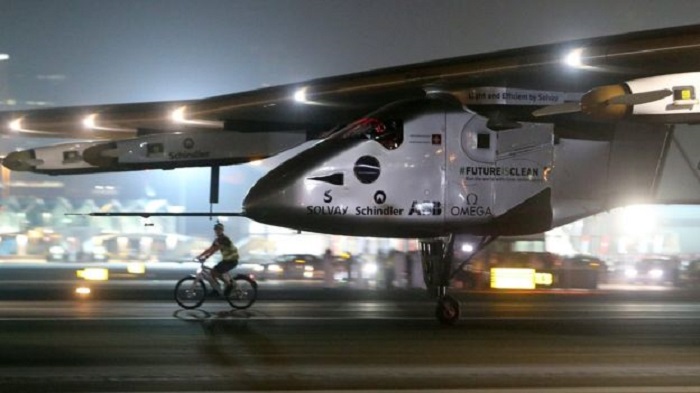Solar Impulse completes historic round-the-world trip

He has been taking turns at the controls with Swiss compatriot Andre Borschberg, with the mission aiming to promote renewable energy.
It brings to an end a voyage that began in Abu Dhabi on 9 March last year.
"The future is clean. The future is you. The future is now. Let`s take it further,`` Mr Piccard said, arriving into Abu Dhabi to cheers and applause.
The 17-stage journey covered some 42,000km, taking in four continents, three seas and two oceans.
The longest leg, an 8,924km (5,545-mile) flight from Nagoya in Japan to Hawaii, US, lasted nearly 118 hours and saw Mr Borschberg break the absolute world record for longest (time duration) uninterrupted solo flight.
It was just one of 19 official aviation records set during the global adventure.
Mr Piccard and Mr Borschberg have been working on the Solar Impulse project for more than a decade.
The pair had hoped to complete the challenge last year but progress was not quite swift enough to get the best of the weather in the Northern Hemisphere`s summer.
And when battery damage was sustained on that epic five-day, five-night passage over the western Pacific in June/July 2015, the decision was taken to ground the effort for 10 months.
Solar Impulse is no heavier than a car, but has the wingspan of a Boeing 747. It is powered by 17,000 solar cells.
Its experimental design presents a number of technical difficulties, with the airplane being very sensitive to weather conditions.
Indeed, the passage from Cairo was very bumpy for Mr Piccard as he battled severe turbulence above the hot Saudi desert.
The cockpit is about the size of a public telephone box, with the pilots having to wear oxygen tanks to breathe at high altitude and permitted to only sleep for 20 minutes at a time.















































